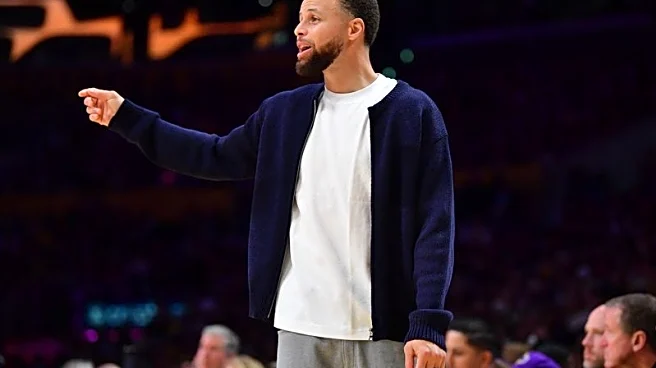What's Happening?
Bill Belichick and Deion Sanders, both renowned for their NFL careers, have embarked on college coaching paths with differing results. Sanders has successfully led the Colorado Buffaloes to a bowl game
and secured a lucrative contract extension, while Belichick has faced challenges at North Carolina. Sanders' approach includes integrating his family into the program and embracing media attention, which has contributed to his success. In contrast, Belichick's tenure has been marked by on-field struggles and public relations challenges, including issues with media projects and personal relationships.
Why It's Important?
The contrasting experiences of Belichick and Sanders in college coaching highlight the importance of adaptability and public perception in sports management. Sanders' ability to leverage media and family involvement has enhanced his program's visibility and success, while Belichick's struggles underscore the challenges of transitioning from the NFL to college football. These dynamics can influence recruitment, team performance, and the overall reputation of the programs. Understanding these factors is crucial for stakeholders in college sports, as they navigate the complexities of coaching and program development.
What's Next?
Both coaches face critical junctures in their college careers. Sanders will continue to build on his program's success, focusing on maintaining momentum and addressing any challenges that arise. Belichick, on the other hand, may need to reassess his strategies to improve team performance and public relations. The upcoming games for both teams will be pivotal in shaping their respective futures and determining the long-term impact of their coaching styles.
Beyond the Headlines
The experiences of Belichick and Sanders also raise questions about the role of personal relationships and media in shaping public perception. Sanders' low-key approach to his personal life contrasts with Belichick's more publicized relationships, affecting their public images. These elements can influence the coaches' ability to garner support and patience from fans and stakeholders, highlighting the complex interplay between personal and professional life in sports.










